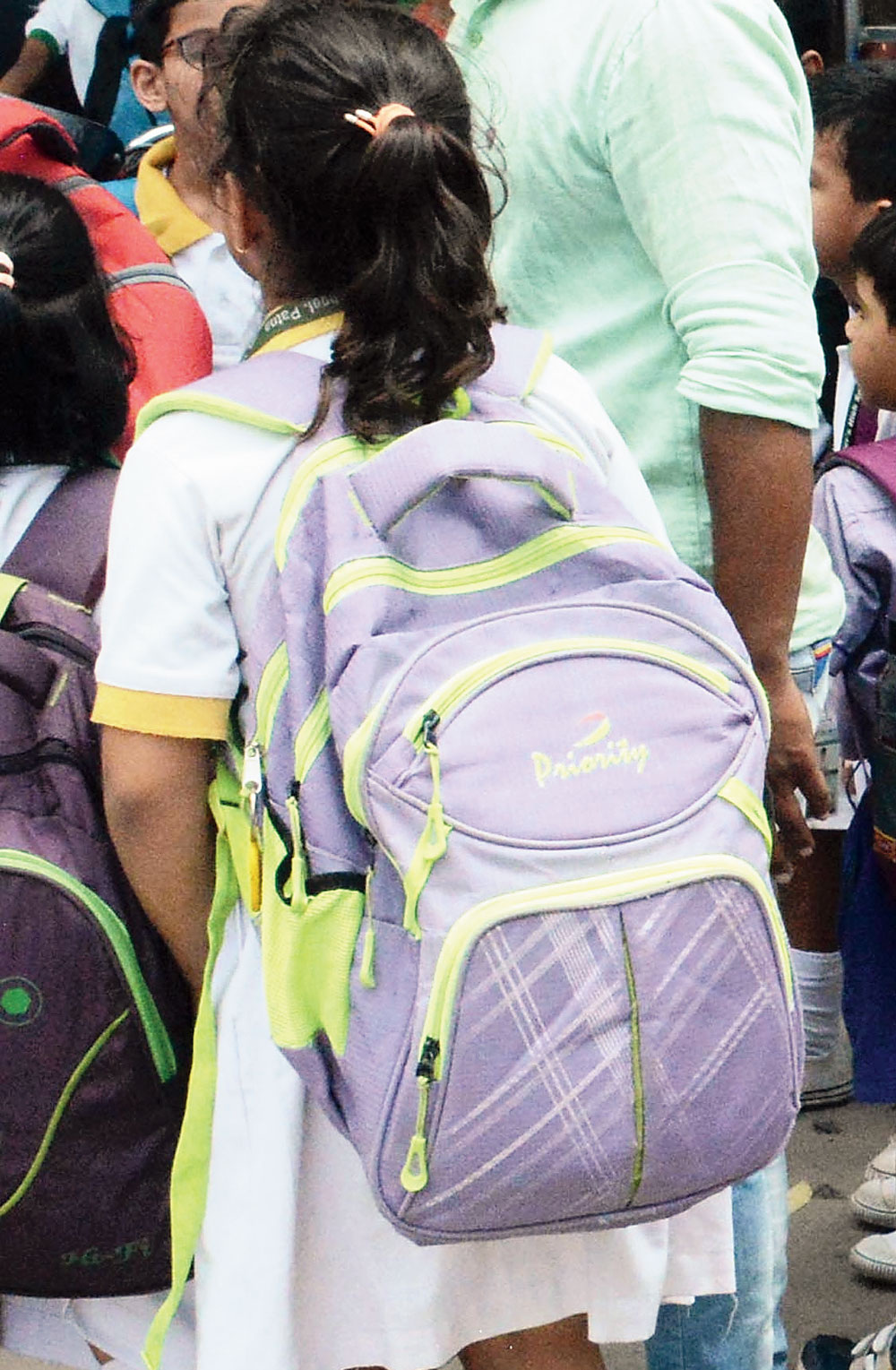Most children in the city will have to continue lugging heavy loads to school for this academic year despite the Union human resource development ministry’s recent circular limiting weights of schoolbags.
As per the circular, the state governments have to formulate guidelines to limit schoolbag weight according to the class the students are enrolled in. The Union ministry’s letter also says that Class I and Class II students need not to be given homework.
As per the circular, the weight of schoolbags for students of classes I and II should not exceed 1.5 kg, while those of students of class III to V should weigh between 2kg and 3kg. Schoolbags of students of classes VI and VII should not weigh more than 4kg, while the weight of schoolbags of Class VIII and Class IX students should not be above 4.5kg. The schoolbag of a Class X student should not weigh above 5kg.
Don Bosco Academy principal Mary Alphonsa said on Tuesday that the Centre’s directive would be implemented from the next academic session that starts in April.
Loyola High School principal Brother Satish, too, said his school would implement the directive from the next academic session.
“We have no option,” Satish said. “We are supposed to implement this but we will do this from the next academic session. This session is too late. It is almost yearend. From next year, we have to plan things out accordingly and we will see what can be done with the number of books and routine. Basically, we have restriction for carrying books only for Class I and Class II students but senior section students have to
bring all their books. We would have to monitor the number of books and the weight of the bag of the senior section students and do something about it.”
St Michael’s High School principal Father Armstrong Edison said his school will see how the Centre’s directive could be implemented. “As of now, Class I and Class II students of our school are already carrying a limited set of books,” he said. “They don’t carry notebooks and drawing books; we keep those in the school. They carry the rest of the stuff, which weighs less than 2kg. So, in a way, we are already following the guidelines which have been issued for the primary section. For the secondary section, we will see what changes have to be done.”
Parents of schoolchildren feel the Centre’s directive is much-needed.
“Can you imagine a Class I student is carrying a bag that weighs around 5kg?” asked said Soni Kumari, whose son studies in Class I at St Michael’s High School. “Even adults huff and puff if they have to carry such weight. My son has to carry all the books along with two notebooks, one for class work and another for homework, along with pencil box, napkin, lunchbox and water bottle. Sometimes, he also has to carry a test notebook. At other times, he also has to carry project work-related stuff. All this adds to his schoolbag weight. We always find him stooping forward while carrying his bag as it is always heavy. The Union ministry’s circular should be implemented without any further delay at least for primary section students because carrying this much weight might cause health implications for them.”
Soni said that sometimes the school keeps the notebooks but added that it did not make any significant difference in the schoolbag weight.
Pragya Mishra, whose daughter studies in Class V at Loyola High School, said that her daughter’s bag weighs around 6-7kg and the child often complains about neck and back pain.
“Once she is out of school, she never holds her bag and immediately hands it over to me,” Pragya said. “She is fretful and fussy after returning from school because she carries such a heavy bag. The HRD ministry’s order should be thoroughly implemented.”
According to the ministry directive, the states should follow the schoolbag norms laid down by the governments of Telangana or Maharashtra.
Telangana has absolute class-wise ceilings for the weight of schoolbags while Maharashtra says the schoolbags should not weigh more than 10 per cent of the child’s weight. The Centre’s directive also asked the states and Union territories to ensure their school boards only allowed the teaching of mathematics and language in Classes I and II. It said environmental studies could be added in Classes III to V.












